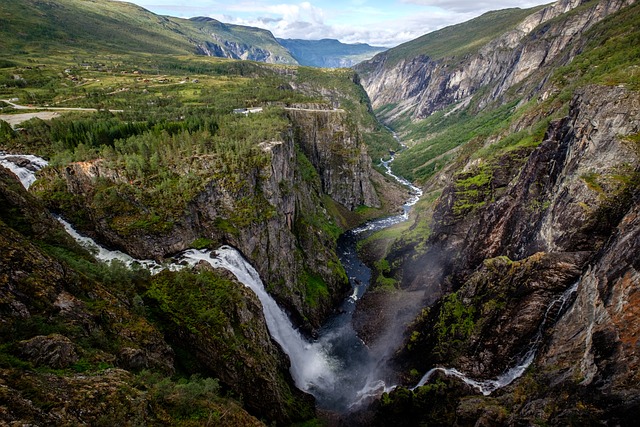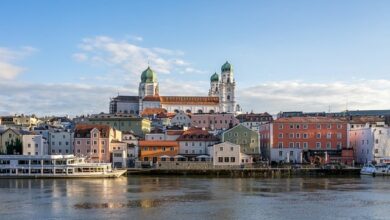The Future of Luxury Travel: Trends to Watch

Luxury travel has always been synonymous with exclusivity, personalized experiences, and unparalleled comfort. However, as consumer preferences evolve and technology advances, the definition of luxury is shifting. Today’s affluent travelers seek more than just opulence—they crave meaningful, immersive, and sustainable experiences. In this article, we’ll explore the key trends shaping the future of luxury travel and what they mean for travelers, hospitality providers, and destinations.
1. Personalization and Hyper-Customization
What Does Hyper-Customization Mean?
Hyper-customization goes beyond traditional personalization by tailoring every aspect of a traveler’s journey to their unique preferences. From curated itineraries to bespoke accommodations, luxury travelers expect experiences designed specifically for them.
Why It Matters
- Unique Experiences: Affluent travelers value one-of-a-kind adventures that reflect their individual tastes.
- Technology-Driven Insights: AI and data analytics enable brands to anticipate needs and offer proactive recommendations.
- Emotional Connection: Customized services create deeper engagement and loyalty.
Examples
- Private chefs preparing meals based on dietary preferences.
- Tailor-made excursions, such as guided tours led by local historians or wildlife experts.
- Smart rooms that adjust lighting, temperature, and entertainment settings according to guest profiles.
Future Outlook
As AI and machine learning advance, hyper-customization will become even more sophisticated. Expect virtual concierges and predictive algorithms to anticipate desires before travelers even articulate them.
2. Sustainability and Eco-Luxury
The Rise of Eco-Luxury
Affluent travelers are increasingly prioritizing sustainability without compromising on luxury. Eco-luxury combines high-end amenities with environmentally responsible practices, appealing to conscious consumers.
Key Features
- Green Accommodations: Hotels powered by renewable energy, featuring organic linens and zero-waste policies.
- Conservation-Focused Activities: Wildlife safaris, marine conservation projects, and eco-tours that support local ecosystems.
- Carbon Offsetting Programs: Travel companies offering carbon-neutral flights, transfers, and stays.
Consumer Demand
Younger generations, particularly Millennials and Gen Z, are driving demand for sustainable luxury. They view ethical travel as an extension of their values and expect brands to align with these principles.
Looking Ahead
Sustainability will no longer be optional—it will be a core component of luxury travel. Brands will invest in regenerative tourism initiatives, ensuring positive impacts on communities and environments.
3. Immersive Cultural Experiences
Beyond Sightseeing
Modern luxury travelers want to connect deeply with destinations through authentic cultural immersion. This includes interacting with locals, participating in traditional rituals, and exploring hidden gems off the beaten path.
Trends in Cultural Tourism
- Local Partnerships: Collaborations with artisans, chefs, and historians to create exclusive experiences.
- Heritage Preservation: Supporting UNESCO World Heritage Sites and indigenous communities.
- Storytelling: Guided narratives that bring history, art, and culture to life.
Examples
- Cooking classes with renowned chefs using locally sourced ingredients.
- Private access to museums or archaeological sites after hours.
- Homestays with families who share their traditions and way of life.
Future Developments
Augmented reality (AR) and virtual reality (VR) will enhance cultural immersion, allowing travelers to “step into” historical events or ancient civilizations. These technologies will complement real-world experiences rather than replace them.
4. Wellness and Mindful Travel
Wellness as a Core Component
Luxury travelers are placing greater emphasis on physical, mental, and emotional well-being during their journeys. Wellness-focused vacations now extend beyond spas to include holistic retreats and mindful activities.
Emerging Trends
- Holistic Retreats: Combining yoga, meditation, nutrition counseling, and spiritual guidance.
- Nature-Based Healing: Forest bathing, ocean therapy, and stargazing sessions.
- Tech-Free Zones: Properties offering digital detox programs to encourage mindfulness and relaxation.
Luxury Wellness Offerings
- On-demand wellness coaches and therapists.
- Biometric tracking devices integrated into hotel amenities.
- Customized spa treatments based on genetic testing or skin analysis.
Future Implications
Wellness will continue to dominate luxury travel, with innovations like sound healing chambers, cryotherapy suites, and AI-powered fitness plans becoming standard offerings.
5. Private and Exclusive Access
Demand for Privacy
Privacy remains a cornerstone of luxury travel. High-net-worth individuals seek secluded escapes and exclusive access to avoid crowds and maintain discretion.
Popular Options
- Private Villas: Standalone properties with dedicated staff and private pools.
- Charter Flights: Private jets and yachts offering door-to-door convenience.
- Exclusive Events: Invitations to members-only gatherings, such as art exhibitions or music festivals.
Enhanced Privacy Measures
- Biometric security systems at luxury resorts.
- Encrypted communication channels for booking and planning.
- Remote locations accessible only via helicopter or boat.
Future Trends
The concept of “luxury isolation” will grow, with ultra-private islands, underground hotels, and remote wilderness lodges gaining popularity. Technology will ensure seamless yet secure access to these exclusive venues.
6. Space Tourism and Beyond
The Final Frontier
Space tourism represents the ultimate frontier in luxury travel. Companies like SpaceX, Blue Origin, and Virgin Galactic are making strides toward commercial spaceflights, offering once-in-a-lifetime experiences beyond Earth’s atmosphere.
What to Expect
- Suborbital flights providing breathtaking views of Earth.
- Orbital hotels where guests can experience zero gravity.
- Lunar expeditions for the ultra-wealthy.
Challenges and Opportunities
While space tourism is still in its infancy, early adopters are willing to pay millions for the privilege. As costs decrease and technology improves, this segment will expand, attracting more adventurous travelers.
Looking Forward
Space tourism will inspire new forms of luxury, such as interplanetary dining experiences or celestial photography workshops. It will also drive innovation in terrestrial luxury travel.
7. Digital Integration and Virtual Previews
How Technology Enhances Planning
Digital tools are transforming how luxury travelers research and book trips. Virtual previews allow them to explore destinations, accommodations, and activities before committing.
Innovative Tools
- Virtual Reality Tours: Explore hotel suites, villas, or cruise ships from home.
- AI Chatbots: Provide instant answers to queries about destinations and packages.
- Blockchain Booking Systems: Ensure secure, transparent transactions.
Benefits
- Saves time and reduces uncertainty for travelers.
- Helps luxury brands showcase their offerings creatively.
- Enables dynamic pricing and last-minute deals.
Future Applications
Metaverse platforms may emerge as virtual hubs for luxury travel planning, where users can attend destination showcases or meet travel advisors in immersive environments.
8. Multi-Generational and Group Travel
The Appeal of Shared Experiences
Multi-generational travel—where families spanning different age groups vacation together—is growing in popularity among luxury travelers. Similarly, group travel for friends or corporate teams fosters bonding and shared memories.
Tailored Solutions
- Family-friendly villas with separate wings for privacy.
- Adventure tours catering to diverse interests and fitness levels.
- Team-building retreats combining work and leisure.
Personal Touches
Luxury providers go the extra mile by accommodating special requests, such as birthday celebrations, anniversaries, or milestone events.
Future Growth
Customizable group travel packages will become more common, blending relaxation, adventure, and education. Destinations will cater to mixed-age groups with versatile programming.
9. Focus on Health and Safety
Post-Pandemic Priorities
The global pandemic heightened awareness of health and safety in travel. Luxury travelers now expect rigorous hygiene protocols and contactless services as part of their experience.
Enhanced Measures
- Temperature checks and sanitization stations at entry points.
- Contactless check-in/check-out and room service.
- Medical staff available on-site for emergencies.
Long-Term Impact
Health-conscious design will influence future developments, with features like air purification systems, UV sterilization, and touchless controls becoming standard.
10. Localized Luxury
Rediscovering Nearby Destinations
Travel restrictions have encouraged affluent travelers to rediscover local destinations. Proximity doesn’t diminish luxury; instead, it enhances convenience and authenticity.
Examples
- Boutique hotels in rural areas offering farm-to-table dining.
- Coastal getaways with private beaches and water sports.
- Urban retreats featuring rooftop gardens and cultural programming.
Community Engagement
Localized luxury emphasizes supporting local economies through partnerships with artisans, farmers, and small businesses.
Future Prospects
Domestic luxury travel will thrive alongside international options, with brands investing in regional gems that offer world-class amenities.




